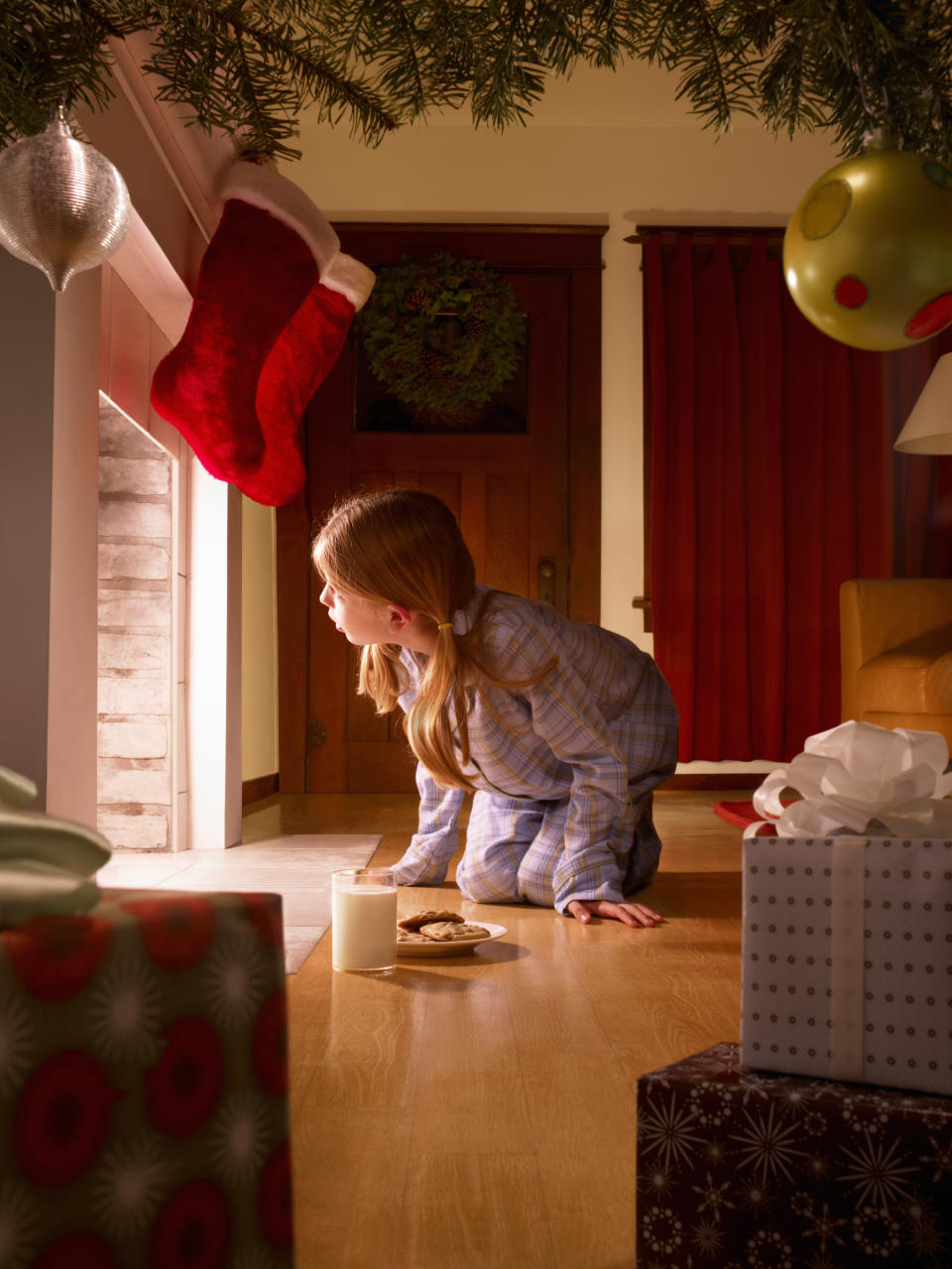Should parents tell their children the truth about Santa Claus?

Every year at Christmas, parents everywhere convince their little ones that if they behave themselves for the next couple of weeks, a wonderful man with a big belly will squeeze down their chimney, eat the cookies they’ve left out for them, drink the glass of milk, and leave them a whole wealth of presents on Christmas morning.
Santa Claus. It’s the magical myth that is an essential part of our childhoods. But could the age-old tale of Santa actually be damaging to kids? That’s the idea that was discussed in an essay published last year in the journal Lancet Psychiatry.
The paper, called “A wonderful lie,” suggests that the trust children have in their parents may be undermined by their spinning stories about Santa. What’s more, the reasons behind maintaining the belief could actually be morally suspect.
“If they are capable of lying about something so special and magical, can they be relied upon to continue as the guardians of wisdom and truth?” the researchers write.
“If adults have been lying about Santa, even though it has usually been well intentioned, what else is a lie? If Santa isn’t real, are fairies real? Is magic? Is God?”
Psychologist Professor Christopher Boyle and social scientist Dr. Kathy McKay also condemn the idea of a “terrifying” North Pole, which judges whether children have been naughty or nice each year.
“All children will eventually find out they’ve been consistently lied to for years, and this might make them wonder what other lies they’ve been told,” psychologist Christopher Boyle, a professor at the University of Exeter, said in a statement.
“Whether it’s right to make children believe in Father Christmas is an interesting question, and it’s also interesting to ask whether lying in this way will affect children in ways that have not been considered.”

But aside from wanting to prolong the magic of Christmas, some experts argue there’s another, more selfish, reason parents are choosing to keep the truth about Santa a secret.
Dr. Kathy McKay, of the University of New England in Australia, said there was evidence from the world of make-believe in films and TV that in prolonging the Santa Claus myth, parents were looking for a chance to relive their own childhoods.
“The persistence of fandom in stories like Harry Potter, Star Wars, and Doctor Who well into adulthood demonstrates this desire to briefly re-enter childhood,” she said.
But not all experts are in agreement that maintaining the magical myth is detrimental to children, or indeed families as a whole.
Psychologist Emma Kenny, of makeyourswitch.co.uk, believes that, far from being damaging, keeping a belief in Santa alive can in fact open children up to the idea of possibility.
“I believe that Father Christmas is an individual who brings magic into our children’s lives,” she says. “In a world where fear, destruction, and negativity is a daily experience, these kind of ‘lies’ enable children an opportunity to enjoy a world of possibility.
“I asked my children, who are 15 and nearly 13, about their feelings towards my lies, and they suggested that it had been wonderful to imagine a world of magic, imagination, and possibility regarding Christmas. As opposed to feeling harmed, they felt inspired and hopeful,” she continues.
“Why steal imagination and magic from childhood? I loved the idea of the Tooth Fairy, Santa and magic per se, and the idea of it upsetting and harming childhood is the PC brigade’s way of interfering with an amazing time in our little ones’ lives!”
It’s an opinion shared by one mother of three, who asked for her name not to be used. “There’s a magic about Christmas that is about keeping the illusion alive,” she says. “Plus, faith requires believing in something intangible.”
And even if parents do decide they want to fess up to the festive truth, there’s the question of when children should be told that Santa isn’t real.
A recent survey by the children’s book publisher NurseryBox revealed that a third of British children stop believing in Santa Claus by the age of 6, but play along to keep their parents happy.
Speaking to Daily Mail Australia on the subject, a leading parenting expert, Dr. Justin Coulson, claimed that, in his experience, kids get curious between the ages of 5 and 7.
“It’s a constant topic of conversation, and like anything that’s supposed to be a secret: Knowledge is power,” he said.
But if your child hasn’t yet found out, when is the right time to spill the beans?
“The right time to tell your child is as soon as they ask. If they’re old enough and curious enough to question, then they’re old enough to know the truth,” he said.
Read more from Yahoo Lifestyle:
7 questions with the founders of Shine, the app that’s reinventing self-help
High schooler’s heroic act helps marathon runner cross the finish line
Follow us on Instagram, Facebook, and Twitter for nonstop inspiration delivered fresh to your feed, every day.
